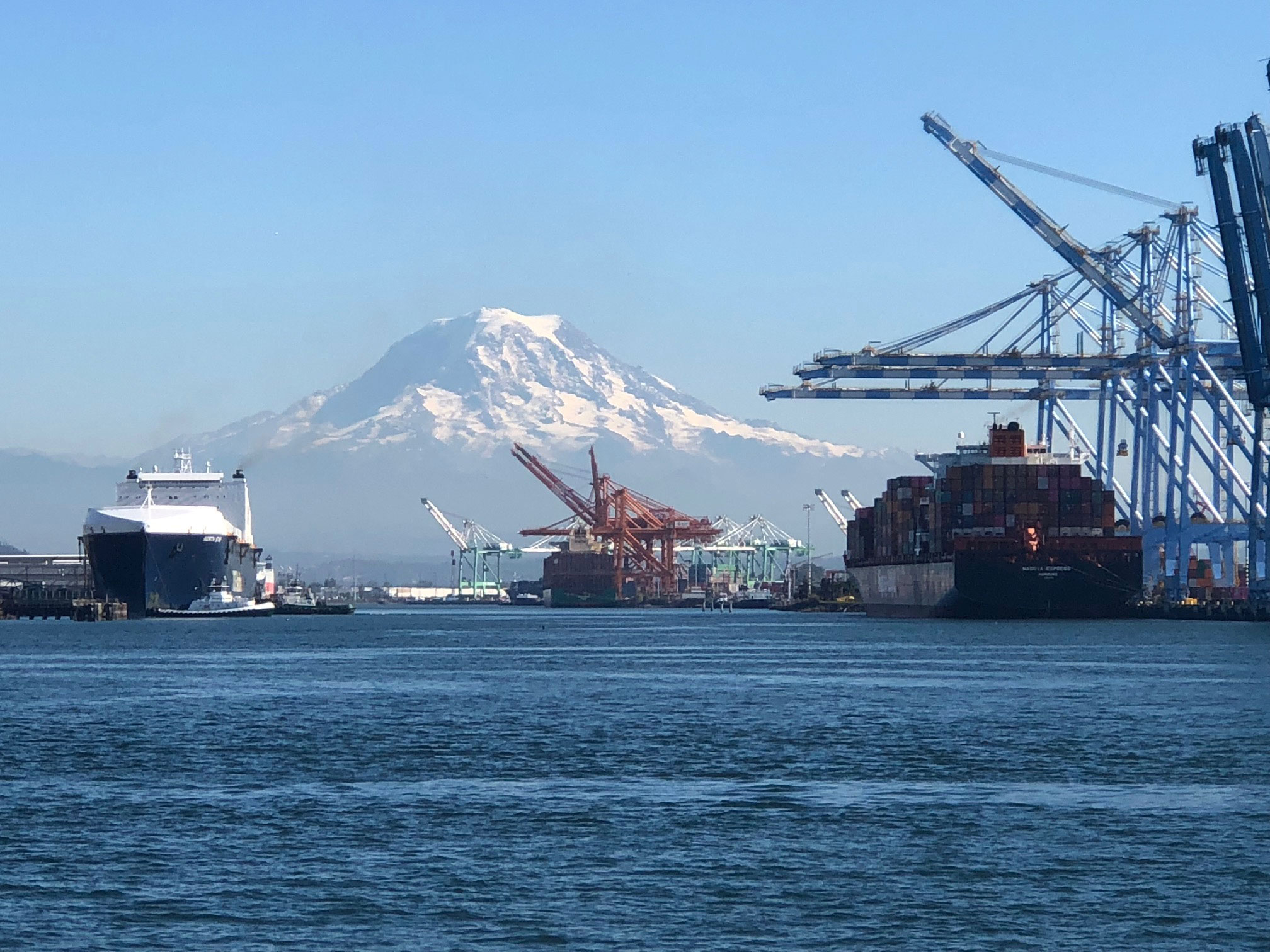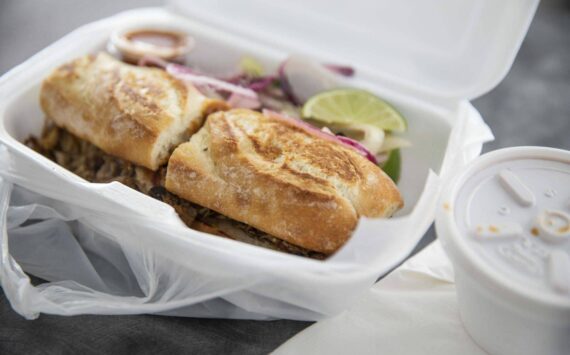By Morf Morford
Tacoma Daily Index
If you walk along Dock Street, you can’t help avoiding the impression that everyone in Tacoma must have a boat.
And if, like me, you don’t own a boat, when you see all those boats out on the water at one of the many marinas, you are probably thinking “Who do I know with a boat?” or “How can I get one of those?”


Like most people around here, I see the water all the time, probably every day – but I very rarely get out on it.
Maybe the water around here is like Mt.Rainier – we see it all the time, and probably even take it for granted, but almost never encounter it directly.
Mt. Rainier, depending where you go, is about a 90 minute drive away. The water, depending where you are, is almost everywhere.
Most people don’t think of Tacoma as a peninsula, but if you look at a map, it couldn’t be more obvious. Most of Tacoma has water on both sides, and yes, the north boundary of the city is defined by water. Many neighborhoods, from the Eastside to North Slope, West side and North End (and probably a few others) hold water views.
We even have water based (and usually historic) communities along the water – some public and working (like the Port of Tacoma) some with an emphasis on the historic (like Old Town Tacoma) and some largely under the radar (like Salmon Beach).
The native people used the waterways as their primary mode of transportation. Land based travel was largely along trails, but water travel was faster, safer and usually easier.
Fast-forward a century or so and we find that water travel again seems the most practical. And it is certainly one of the most enjoyable ways to see and experience this unique place we call home.
Tacoma’s Mosquito Fleet (1*) only lasted from the 1880s to the early 1920s. The Seattle-Tacoma water-based commuter system lasted until the electric inter-urban railway lines opened in the early 1900s – which in turn were replaced by the rapidly developing highway system. (2*)
Once in a while I hear talk about a resurrection of the south Puget Sound Mosquito Fleets – but this time with high speed passenger-only ferries integrated with land-based mass transit.
If you have been on I-5 lately, you know that there has to be a better way to move between Seattle and Tacoma.
Depending on your location and destination, water just might be the best way to travel around here once again. (3*)
You could describe the water scene around here as “how the other half lives.”
Most of the time that term is used to describe those who inhabit a completely different social stratosphere, but I mean it as a distinction between those of us who live and work and travel upon the ground and those who live, work, travel and play upon the water.
You may have heard the old saying of the two happiest days of a boat owners life; the day of buying a new boat – and the day of selling it.
Buying a boat can easily be one of your biggest investments, but besides sponging off your friends, or relatives, there are relatively affordable alternatives. One of the most interesting is also one of the newest.


The Freedom Boat Club (FBC) addresses most, if not all, of the “problems” of boat ownership like storage, care and maintenance.
For a quite reasonable price (by boating standards) you can have essentially unlimited access to a boat any time.
What kind of boat you might ask? Their policy is to own one boat for every ten members, so depending on your needs, the size of your group (you can take guests) or your mood, you can take your pick of boats. As of mid-December, 2018 FBC Tacoma has 5 Boats; all brand new and ranging from 19-25 ft. You can pick a Northwest Aluminum Fishing Boat, a Campion Cuddy Cruiser, a Four Winns Bow Rider, a Sweetwater Pontoon Boat or a Merry Fisher/ NC Sports Pilot House.
These are not rental boats. They are owned by FBC and are for members only.
Minimal training is offered – and required – for safe and enjoyable use. Your only cost after membership is the fuel you use.
Membership can be reciprocal with the other 170 or so FBC groups around the country (including a few in Canada and Europe).
You can see a full list of FBC locations here – https://freedomboatclub.com/locations/ and the latest news related to FBC here – https://freedomboatclub.com/news-room/.
You can contact any location to set up a personal tour at Bremerton, Tacoma or the soon-to-be Olympia locations. (4*)
My sense is that this would be a fabulous holiday family gift – and great new venture for the new year. And if you use it, one of the best investments you could ever make.
And if you join, tell them Morf sent you – and I am always up for a boat ride.
(1*) For a short retrospective on Tacoma’s Mosquito Fleet, take a look here – https://www.nwyachting.com/articles/legacy-of-the-mosquito-fleet/ or here https://infogalactic.com/info/Puget_Sound_Mosquito_Fleet.
(2*) To get a sense of the distance and the time required to get from port to port, check out this handy guideline to Northwest ports – http://nwcruising.net/nm_index.html.
(4*) You can see more about the Tacoma and South Sound locations here – https://freedomboatclub.com/locations/200-tacoma-wa/








